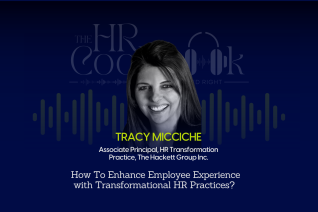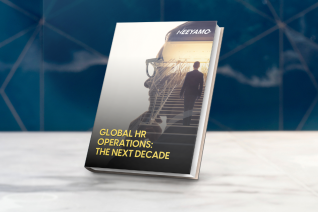Establish your presence globally with Neeyamo as we help you go beyond borders to manage your international payroll services and hire new talent in Bangladesh.
Overview
A land filled with natural wonders, Bangladesh, though a young country, is home to various natural marvels such as the Sundarbans – the largest mangrove forest in the world, or the river 'Padma' - the world's second fastest river after the Amazon river and also 'Cox's Bazar' - the worlds largest natural sea beach. Similar to these marvels, Bangladesh also has a talented and dedicated workforce that can be found across the span of the country.
Do your organization’s expansion plans require you to hire employees in Bangladesh? Do you lack a physical entity in the country – a key requisite to hire local talent? Neeyamo, a Global Payroll Service Provider, assists organizations worldwide with onboarding and managing employees in Bangladesh – processing a firm's payroll and tax services, managing local compliance requirements, benefits, and more.
Tools And Instances
Facts And Stats
Capital
Dhaka
Currency
Bangladeshi Taka
Official Language
Bengali
Fiscal Year
1 July (Preceding) - 30 June(Current)
Date Format
DD/MM/YYYY
Country Calling Code
+880
Other Languages
English, Burmese, Chittagonian, Dhakaiya Kutti, Noakhailla, Rangpuri, Sylheti, Varendri
Time Zone
UTC+06:00
Global Payroll
Overview
What is Payroll?
Payroll is the list of compensation to be paid to employees of a company or organization for a set period or date. Global payroll companies allow organizations to outsource their payroll, allowing employers to focus on other aspects of their business.
Handling payroll for a widespread workforce can pose a significant challenge for any organization, and the added complication of compliance can make things worse. If companies spend more time processing payroll, it directly impacts day-to-day operations and their overall productivity. The solution to this is using a global payroll outsourcing company, such as Neeyamo. Global payroll processing is typically done with the assistance of an outsourced payroll provider.
Over the years, Neeyamo has observed these complexities and strived to provide a global payroll solution through a single technology platform - Neeyamo Payroll. Neeyamo’s global payroll system eases the process for companies looking to outsource their global payroll requirements and aids them in maneuvering the tricky payroll system in Bangladesh. Neeyamo’s payroll software provides the perfect solution for all your global payroll needs – for employees working in primary geographies, the long-tail region, remote or internationally located.
Payroll Taxes
Payroll tax is the percentage amount retained from an employee's salary and paid to the government to invest in the general population's welfare. These are statutory in nature and are levied from both the employer and employee. Additional statutory contributions are made by employers towards providing both short-term and long-term benefits for their employees.
Employee Taxes
There is no concept of social security in Bangladesh. However, companies of a certain size need to pay 5 percent of their profits into a Workers Profit Participation Fund
- Range of Tax-Year Income (Bangladeshi Taka)
- Income Tax Rate ( ৳=taka)
- Up to ৳ 300,000- Zero
- More than ৳ 300,000 and up to ৳ 400,000- 5%
- More than ৳ 400,000 and up to ৳ 700,000- 10%
- More than ৳ 700,000 and up to ৳ 1.1 million- 15%
- More than ৳ 1.1 million and up to ৳ 1.6 million-20%
- More than ৳ 1.6 million- 25%
Beginning from the 2023-24 fiscal year:
-
A wealth tax is introduced at the rate of 10 percent for individuals with net wealth exceeding 40 million takas, and 35 percent for individuals with net wealth exceeding 1 billion takas.
-
Increase in individual tax-free income limits for various taxpayers.
-
Introduction of rules for the simplification of tax compliance and tax return filing procedures.
-
Extension and expansion of VAT exemptions on domestic production of specified products.
Employer Taxes
There is no concept of social security in Bangladesh. However, companies of a certain size need to pay 5 percent of their profits into a Workers' Profit Participation Fund
Payroll Cycle
Overview
Undoubtedly, payroll is a critical process for any organization. Pay cycle in Bangladesh refers to the period for which an organization pays its employees, and this can vary depending on the pay frequency that the organization chooses to adopt.
Frequency
In Bangladesh, the payroll cycle can be daily, weekly, bi-weekly and monthly. Employees’ salaries must be paid by the end of the seventh day after the final day on which the payment is due, according to Bangladesh’s Employee Rights and Labor Law. The same rules are applied to those employees whose employment has been ended by the employer.
13th Month Cycle
There is no statutory requirement to provide a 13th month salary.
Global Work
Overview
Employer of Record: Meaning
An Employer of Record / EOR services provider helps you eliminate the hassle of handling complexities while onboarding a new employee in an international location. They help bridge the gap that otherwise mandates organizations to have a local registered entity and a local bank account, prior to making a job offer to an international hire.
An Employer of Record / EOR services provider acts as a legal employer, facilitates salary payments, and manages other statutory requirements such as health insurance, payroll taxes, and employee benefits ensuring compliance with local tax laws and regulations.
This allows organizations to focus on collaborating with the employee in Bangladesh for operational tasks, with the knowledge that they have a cost-effective solution to support their global payroll & HR requirements, as they continue their global expansion.
Neeyamo, a global payroll provider, using its Cloud based HR and Payroll software, strives to provide its customers with a seamless employee management experience and offers global payroll compliance and EOR aspects with our Global Payroll Technology Stack.
HR Mandates and Practices
Minimum Wage
Minimum Wages in Bangladesh is expected to reach 10000.00 BDT/Month by the end of 2022.
Overtime
However, as per the regulation of Section 108, the workers can be made to work for a maximum of 10 hours on the condition of giving remuneration for overtime hours. In addition, in that case, the worker’s consent has to be gained, and they have to be informed a minimum of two hours before the commencement of overtime work.
The period of work of an adult worker in an establishment shall be so arranged that inclusive of his interval for rest or meal under section 101, shall not spread over for more than ten hours, but on the basis of the permission given by the Government either generally or specially for any establishment, and subject to such conditions as may be imposed by it, an exception may be made to the said provision.
Data Retention Policy
The data protection laws of Bangladesh do not expressly impose any obligation on data retention. Tax records generally are to be kept for a minimum of five years.
Employers must keep records of employees' personal data, wages, working hours, breaks, leave, and days of rest, with no time limit specified for retention. The EPZ Labour Act also requires covered employers to keep a register of employees for inspection.
Hiring and Onboarding Requirements
Hiring
There are no legal requirements in the private sector to give preference in hiring to, or not to discriminate against, particular people or groups of people. According to section 5 of the Labour Act, an appointment letter shall be issued by an employer upon hiring an employee. Further, under Rule 19 of the Labour Rules, the appointment letter should contain the following information:
- the name of the worker;
- the name of the worker’s parents;
- the name of the worker’s spouse, if applicable;
- the present and permanent addresses of the worker;
- the designation of the worker;
- the type of work to be undertaken by the worker;
- the date on which the worker will join the establishment;
- the class of the worker;
- the wages or pay scale (wages or salary and the rate of the increase of annual salary, if any);
- other payable financial benefits (house rent, medical expenses, education, food, conveyance, festival and attendance allowances and gratuity, if any); and
- a statement that the conditions of appointment will be governed by the establishment’s existing service rules, if any, and the existing Labour Act.
Onboarding
No employer shall employ any worker without giving such worker a letter of appointment, and every such employed worker shall be provided with an identity card with a photograph. Every employer shall, at his own cost, provide a service book for every worker employed by him.
The service book shall be of such size and in such form as may be prescribed, and a photograph of the worker shall be affixed to it. The service book shall contain the following particulars, namely:
-
name of the worker, name of mother and father and address of the worker, (In appropriate case name of husband/ wife shall be written)
-
date of birth,
-
particulars necessary for identification,
-
name and address of the employer under whom previously employed, if any,
The employer shall, at the commencement of the employment and during the continuance of the same, make such entries therein from time to this service book.
Probation
The period of probation for a worker whose function is of a clerical nature shall be six months, and for other workers such period shall be three months. In the case of a skilled worker, the probation period may be extended for a further period of three months if it is not possible to ascertain the quality of work within the first three months of probation.
Further, a worker shall be deemed to be a permanent worker after completion of his or her probationary period or extended period of three months even if a confirmation letter has not been issued. Therefore, apart from extending the probation period of a skilled worker for a period of three months if it has not been possible to ascertain the quality of his or her work during the initial three months, the employer may not extend the probationary period at his or her discretion.
Leave
Public Holidays
January 21: Shaheed Day
March 8: Shab-e-barat
March 17: Sheikh Mujibar Rahman's birthday
March 26: Independence Day
April 14: Bengali New year
April 24: Eid -al-fitr
May 1: Labour Day
July 1: Eid-al-adha
July 28: Ashura
August 15: National Mourning Day
September 27: Eid-e-milad-un-Nabi
December 16: Victory Day
December 25: Christmas Day
Paid Leave
Paid leave is granted to workers who have completed at least six months of service with the same employer for over 12 months. Its length depends on the worker's seniority. It is 14 calendar days when the worker has less than five years of service, 21 calendar days from 5 to 10 years of service, 28 calendar days from 10 to 20 years of service, and 35 calendar days when the worker's length of service is 20 years or more.
Sick Leave
An employee completing three consecutive months in the employer's service, whose sickness and entitlement to sick leave by providing a certificate issued by any of the Government Medical Centers or any of the clinics retained by the employer, shall be entitled to the following sick leaves during the same year:
- Fifteen days on full pay
- Twenty days on half-pay
- Twenty days without payment
Maternity Leave
Employees expecting a child are entitled to 75 days of maternity leave. The first 60 days are paid in full, with the last 15 days remaining unpaid.
Paternity Leave
Fathers are entitled to one day of paid leave when a child is born.
Other Leave
Child Care Leave: Female employees are entitled to unpaid leave for taking care of her child not exceeding six years of age, of a maximum of six months each time, and for three times throughout their service.
Termination
Notice Period
If a worker is dismissed for misconduct on account of theft, misappropriation, fraud or dishonesty in connection with the business or property of the employer, or disorderliness, riot, arson or breakage in the establishment, he or she is not entitled to any compensation for the dismissal. If a worker who has been in continuous service for at least one year, under extenuating circumstances, is removed, instead of being dismissed for criminal conduct or misconduct, he or she will be entitled to compensation of 15 days’ wages for every completed year of service, under section 23(3) of the Labour Act. However, a dismissed worker shall be entitled to other benefits under the Labour Act, as applicable (such as provident fund, workers’ profit participation fund and welfare fund).
If a permanent worker’s employment is terminated under section 26 of the Labour Act, he or she will be entitled to compensation of 30 days’ wages for every completed year of service or gratuity (if any), whichever is higher, in addition to any other benefit payable under the Labour Act, as applicable (such as provident fund, etc), under section 26(4) of the Labour Act.
If a worker who has been in continuous service for at least one year is retrenched from his or her service, he or she will be entitled to 30 days’ wages for every year of service or gratuity (if any), whichever is higher, under section 20(2)(c) of the Labour Act. Further, he or she will also be entitled to other benefits payable under the Labour Act, as applicable (such as provident fund, etc).
If a worker who has been in continuous service for at least one year is discharged from service, he or she will be entitled to 30 days’ wages for every year of service or gratuity (if any), whichever is higher, under section 22(2) of the Labour Act. He or she will also be entitled to other benefits payable under the Labour Act, as applicable (such as provident fund, etc).
A permanent worker must be given 120 days’ notice, and a temporary worker, whose termination is not owing to the completion, cessation, abolition or discontinuance of the temporary work for which he or she was appointed, must be given 30 days’ notice (if he or she is a monthly rated worker) and 14 days’ notice (for other workers). However, the employer may terminate any worker without notice by paying wages in lieu of notice. For retrenchment, if the worker has been in continuous service for at least one year, they must be given one month’s notice or wages in lieu of notice. For discharge, prior notice is not required.
Procedure
Section 24 of the Labour Act prescribes the procedure for dismissing a worker, which requires providing the allegation to him or her in writing and giving the opportunity for a hearing. However, no prior approval from a government agency is required by law.
Severance Pay
If a worker is dismissed for misconduct on account of theft, misappropriation, fraud or dishonesty in connection with the business or property of the employer, or disorderliness, riot, arson or breakage in the establishment, he or she is not entitled to any compensation for the dismissal. If a worker who has been in continuous service for at least one year, under extenuating circumstances, is removed, instead of being dismissed for criminal conduct or misconduct, he or she will be entitled to compensation of 15 days’ wages for every completed year of service, under section 23(3) of the Labour Act. However, a dismissed worker shall be entitled to other benefits under the Labour Act, as applicable (such as provident fund, workers’ profit participation fund and welfare fund).
- If a permanent worker’s employment is terminated under section 26 of the Labour Act, he or she will be entitled to compensation of 30 days’ wages for every completed year of service or gratuity (if any), whichever is higher, in addition to any other benefit payable under the Labour Act, as applicable (such as provident fund, etc), under section 26(4) of the Labour Act.
- If a worker who has been in continuous service for at least one year is retrenched from his or her service, he or she will be entitled to 30 days’ wages for every year of service or gratuity (if any), whichever is higher, under section 20(2)(c) of the Labour Act. Further, he or she will also be entitled to other benefits payable under the Labour Act, as applicable (such as provident fund, etc).
- If a worker who has been in continuous service for at least one year is discharged from service, he or she will be entitled to 30 days’ wages for every year of service or gratuity (if any), whichever is higher, under section 22(2) of the Labour Act. He or she will also be entitled to other benefits payable under the Labour Act, as applicable (such as provident fund, etc).
Visa
Overview
Long-term Employment Visa
Professionals of Bangladesh appointed by the Government of India as expatriate consultants or experts under an agreement between the two Governments will be issued long-term employment.
An employment visa may be extended up to five years from the date of issue of the initial employment visa, on a year-to-year basis. Multiple-entry employment visa valid for one year may be granted to Bangladeshi nationals who visit India on regular assignment for reputed organizations of both countries (such as Biman Bangladesh Airlines, International Bus Service, Sonali Bank, Air India, etc., or Government to Government projects or where a government organization has awarded a contract to a private firm or are inter-corporate transferees of a multi-national company).
Spouses, dependent children, and parents of such visa holders shall be granted multiple entry dependent visas of appropriate sub-category co-terminus with the visa of the principal Visa holder. Visa may be extended on a year-to-year basis for up to a period of three years.
Documents from Bangladesh
(i) A copy of the Citizenship/domicile certificate along with an English translation clearly indicating the address.
(ii) A letter from the company/ firm/ organization in Bangladesh giving details of the applicant, his/her designation, and the purpose of the visit.
(iii) A copy of the registration of the company/ firm/ organization in Bangladesh or Membership certificate of any Chamber of Commerce of repute of Bangladesh.
Employee Background Checks
Legal and Background Checks
Neither the Labour Act nor the Labour Rules restrict or prohibit carrying out background checks on applicants; thus, an employer can conduct its own checks or hire a third party to do so.
Neither the Labour Act nor the Labour Rules restrict or prohibit requiring a medical examination as a condition of employment; therefore, an employer can refuse to hire an applicant who does not submit to an examination.
There are no restrictions or prohibitions against drug and alcohol testing of applicants in the Labour Act or the Labour Rules; therefore, an employer can refuse to hire an applicant who does not submit to a test.
Last updated on September 20, 2023.
If you have any queries or suggestions, reach out to us at irene.jones@neeyamo.com







